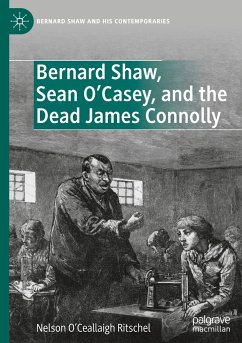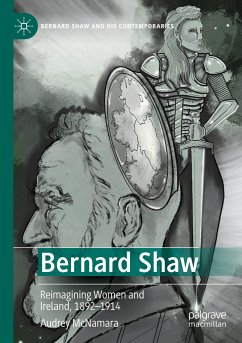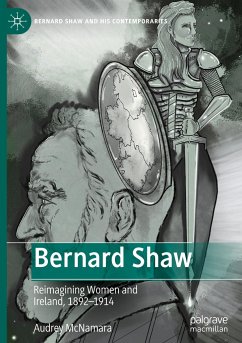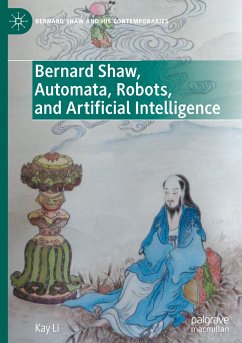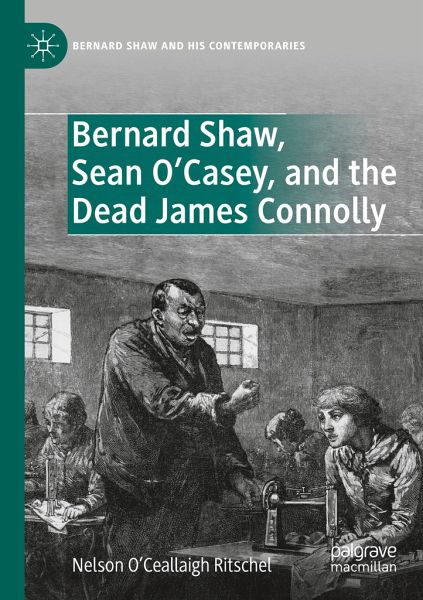
Bernard Shaw, Sean O'Casey, and the Dead James Connolly
Versandkostenfrei!
Versandfertig in 6-10 Tagen
98,99 €
inkl. MwSt.
Weitere Ausgaben:

PAYBACK Punkte
49 °P sammeln!
This book details the Irish socialistic tracks pursued by Bernard Shaw and Sean O'Casey, mostly after 1916, that were arguably impacted by the executed James Connolly. The historical context is carefully unearthed, stretching from its 1894 roots via W. B. Yeats' dream of Shaw as a menacing, yet grinning sewing machine, to Shaw's and O'Casey's 1928 masterworks. In the process, Shaw's War Issues for Irishmen, Annajanska, the Bolshevik Empress, The Tragedy of an Elderly Gentleman, Saint Joan, The Intelligent Woman's Guide to Socialism and Capitalism, and O'Casey's The Story of the Irish Citizen A...
This book details the Irish socialistic tracks pursued by Bernard Shaw and Sean O'Casey, mostly after 1916, that were arguably impacted by the executed James Connolly. The historical context is carefully unearthed, stretching from its 1894 roots via W. B. Yeats' dream of Shaw as a menacing, yet grinning sewing machine, to Shaw's and O'Casey's 1928 masterworks. In the process, Shaw's War Issues for Irishmen, Annajanska, the Bolshevik Empress, The Tragedy of an Elderly Gentleman, Saint Joan, The Intelligent Woman's Guide to Socialism and Capitalism, and O'Casey's The Story of the Irish Citizen Army, The Shadow of a Gunman, Juno and the Paycock, The Plough and the Stars, and The Silver Tassie are reconsidered, revealing previously undiscovered textures to the masterworks. All of which provides a rethinking, a reconsideration of Ireland's great drama of the 1920s, as well as furthering the knowledge of Shaw, O'Casey,and Connolly.



